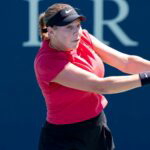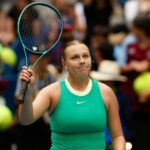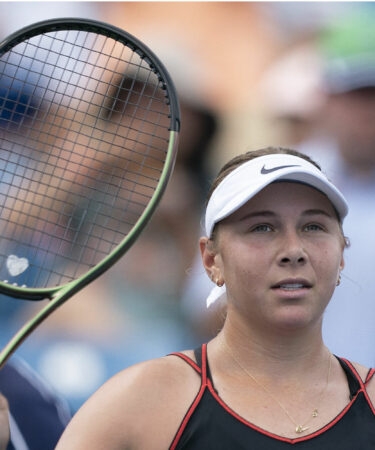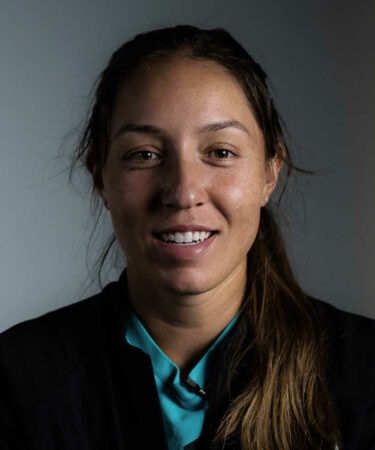“Life is short, so I just want to enjoy each day” – rejuvenated Anisimova rediscovers best tennis with fresh perspective
The American returns to tour from a nine-month break due to mental health struggles with a renewed focus on enjoying her tennis and her career
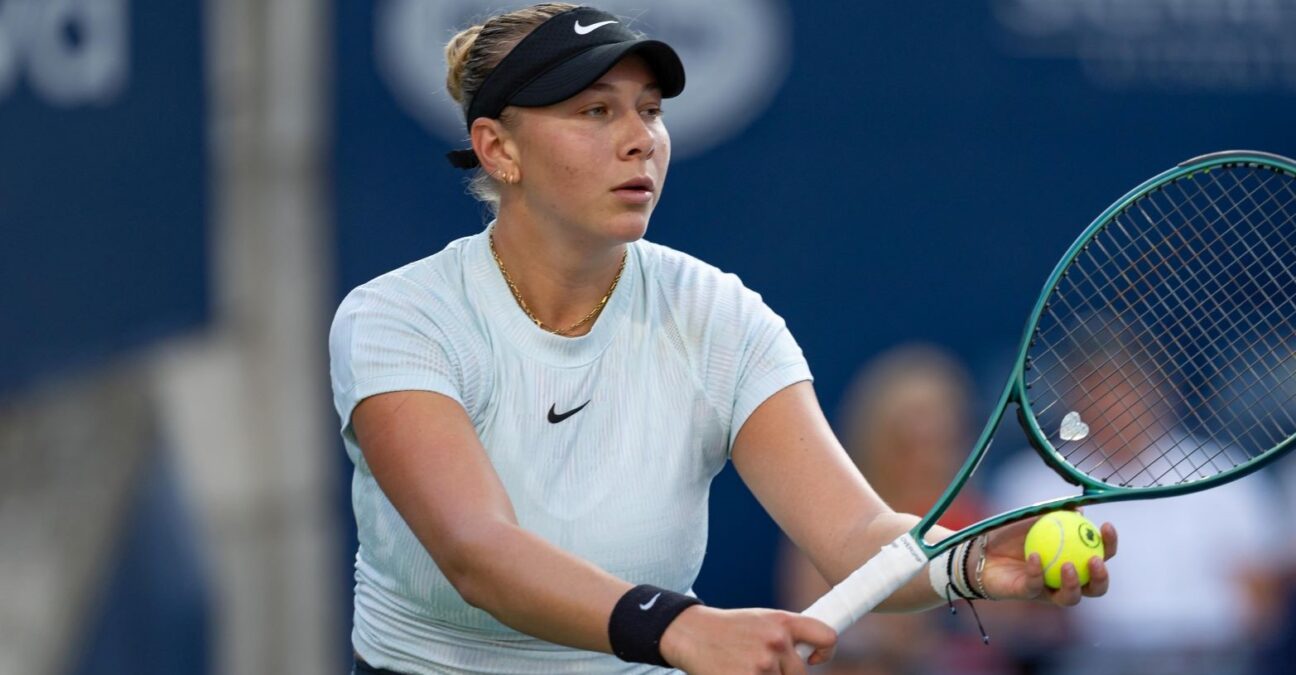 Amanda Anisimova, National Bank Open, Toronto, 2024 © Icon SMI / Panoramic
Amanda Anisimova, National Bank Open, Toronto, 2024 © Icon SMI / Panoramic
These past seven days have arguably been the most significant in Amanda Anisimova’s career since the second week of Roland-Garros 2019.
In June of that year, the then-17-year-old American catapulted herself onto the world stage with a superb run to the semi-finals in Paris, taking down defending champion Simona Halep in the quarter-finals, before succumbing to eventual champion Ashleigh Barty in a closely fought three-set tussle in the last four.
But Anisimova – a quiet, unassuming and introspective person – always sat somewhat reluctantly in the spotlight that her obvious talent attracted.
Since that stunning run in 2019, the New Jersey native has been through too much for someone still at such a tender age. A little over two months after her semi-final berth at the French Open, her father Konstantin Anisimov died suddenly and unexpectedly of a heart attack at the age of 52.
Derailing the rest of her season, and triggering a plummet in form and ranking over the next two years, the loss of her father had a much more profound effect on the mental health and life perspective of Anisimova.
She has grappled with depression and anxiety in recent years, admirably choosing to talk openly about these struggles when she decided to take a nine-month hiatus from tour life in May 2023.
“It’s not easy being your own best friend, you know, so I think we all struggle with that a little bit,” Anisimova explains in a post-match press conference in Ontario’s capital city.
“It’s something that I’ve worked a lot on – trying to be less critical of myself and to try and just provide myself with as much support as I can, because at the end of the day that’s only going to help me.”
a joyous 2024 return for anisimova
This season, Anisimova returned to professional tennis during the year-opening Australian swing at a ranking of 359. Just eight months later, she sits back inside the world’s top 50 at No 49.
This steady, composed rise through the WTA ladder has been epitomised, and accelerated, by the American’s excellent run to the final of the National Bank Open in Toronto over this past week.
En route to the showpiece, Anisimova took down compatriot and in-form world No 15 Emma Navarro, as well as reigning Australian Open champion Aryna Sabalenka, before falling valiantly in three sets to fellow American and defending champion, Jessica Pegula in the final.
Prior to her Canadian success, Anisimova sat 132nd in the world. The significance of her run in Toronto is plainly evident in her rankings surge. Yet, this week also takes on an importance of less tangible measure.
Anisimova reached the biggest final of her career. She did so just eight months into her return from a nine-month mental health break – one which no one was completely sure that the young American would re-emerge from.
But return she has, and in such reaffirming style. With a renewed focus on enjoyment, and being kinder to herself, Anisimova is reaping the rewards of relishing her tennis without listening to the internal pressures of meeting personal expectation.
“I think that that’s something that has really pushed me into the right direction [being kinder to herself]. It has helped me even just this week alone,” Anisimova continues in her post-match conference following that loss to Pegula.
“Yeah, I just wanted to say that, and maybe spread the message to other people that you can be proud of yourself, and to just push through challenges or whatever it is, and at the end of the day it’s only you at the end of the day and you only have your self, so I think that’s really important.”
rejuvenated anisimova returns with message of self-kindness and enjoyment
Still only 22 years of age, the American carries a certain aura of calm wisdom that only comes from having been forced to grow up more rapidly than many of her peers due to personal tragedy.
Despite being on the losing end of Monday’s final against Pegula, Anisimova is keen to stress the achievements made this week, and carries a wider message of refocusing one’s perspective on everyday joy, rather than the gruelling carrot of success.
“I took the break last year, I stepped away from the sport, and probably not a lot of people knew how I would come back or results I would be having. I didn’t either, I mean, nobody could predict that.
“I put the work in, I kept my head down, and I tried to come back to the sport with more of a relaxed feeling, you know, trying to enjoy each day as it comes and not being so serious about everything, because I think that takes away the joy from a lot of things.
“I think with that kind of approach to my everyday life, I think that’s helped me a lot.
“Yeah, life is short, so I just want to enjoy each day no matter how difficult this career and job can be, because at the end of the day it’s not going to be very long. If I play for six more years it’s, you know, it’s not that long, so I want to try and just enjoy it as much as I can.
“Yeah, I think that also feeds into a lot of success, because if you’re not happy, I don’t think that you’re ever going to really do a good job, or at least it’s not going to be sustainable.”
While getting over the winner’s finish line would be the traditional barometer for success for most tennis players, Anisimova’s message as a beaten finalist speaks to a healthier and more fundamental aspect of what achievement looks like – both for a person and a player.
If that perspective also yields career-best results in the process, well, that is simply an added bonus to enjoying one’s craft.
On that note, isn’t it wonderful to have Amanda Anisimova back in the fold?
